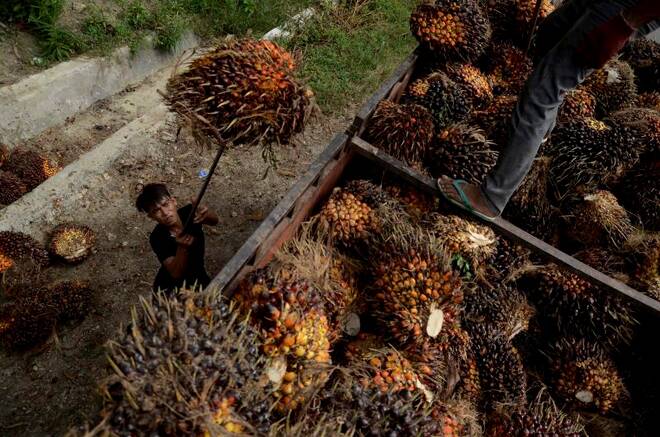Advertisement
Advertisement
Indonesian prosecutors may name more suspects in palm oil probe
By:
JAKARTA (Reuters) - Indonesian state prosecutors are examining transcripts of conversations between people accused of unlawfully obtaining palm oil export permits and more suspects could be named if there is further evidence of breaches, an official said.
JAKARTA (Reuters) – Indonesian state prosecutors are examining transcripts of conversations between people accused of unlawfully obtaining palm oil export permits and more suspects could be named if there is further evidence of breaches, an official said.
Last week, Indonesia’s Attorney General’s Office (AGO) named a senior trade ministry official and three palm oil executives suspects after opening a corruption probe.
Indonesia, the world’s top palm oil producer, between late January to March required palm oil companies to sell part of their planned exports to domestic buyers in an effort to control cooking oil prices at home, under a so-called Domestic Market Obligation scheme.
Providing proof that palm oil had been distributed domestically was the main requirement during that period for securing export permits.
Indonesian investigators were currently examining conversations between the suspects via their electronic devices, Assistant Attorney General Febrie Adriansyah said on Friday.
He declined to elaborate further on the investigation, but said if further evidence was found indicating additional parties were involved in the unlawful issuance of export permits then more suspects could be named.
The suspects face charges of corruption, Febrie said, which can carry a maximum sentence of life in jail.
President Joko Widodo said on Wednesday he wanted a thorough investigation of the alleged breaches.
Indonesia’s government has come under growing pressure from the public to contain soaring cooking oil prices, but up to now its policies have failed to fully address the issue.
Febrie said the AGO has increased the number of investigators assigned to the case to accelerate the process.
Separately, Indonesia’s anti-monopoly agency is investigating eight cooking oil producers on suspicion of cartel practices amid high prices of the edible oil.
(Reporting by Fransiska Nangoy; Editing by Ed Davies)
About the Author
Reuterscontributor
Reuters, the news and media division of Thomson Reuters, is the world’s largest international multimedia news provider reaching more than one billion people every day. Reuters provides trusted business, financial, national, and international news to professionals via Thomson Reuters desktops, the world's media organizations, and directly to consumers at Reuters.com and via Reuters TV. Learn more about Thomson Reuters products:
Did you find this article useful?
Latest news and analysis
Advertisement
